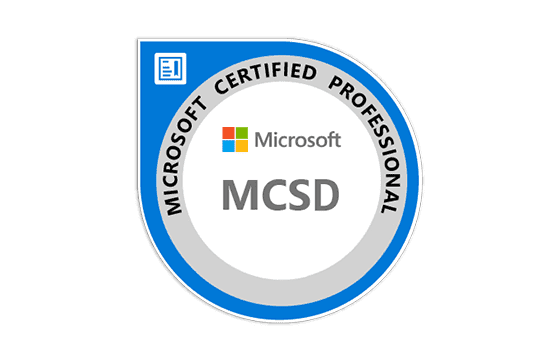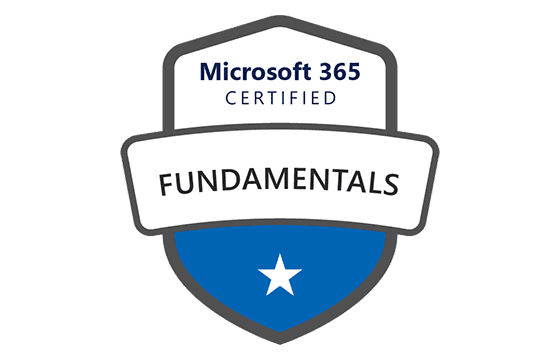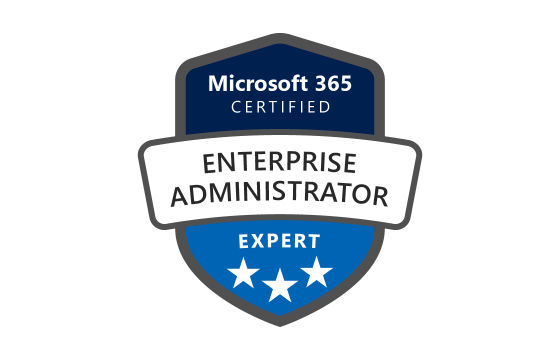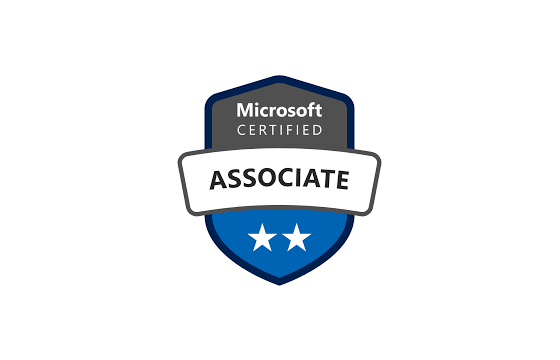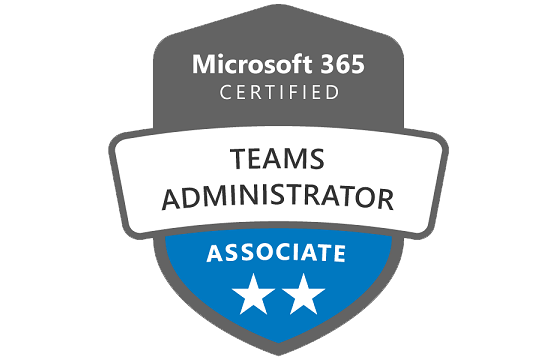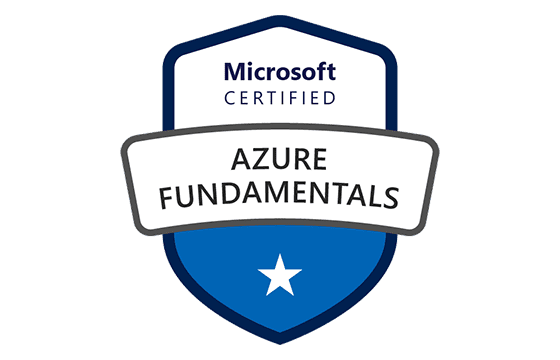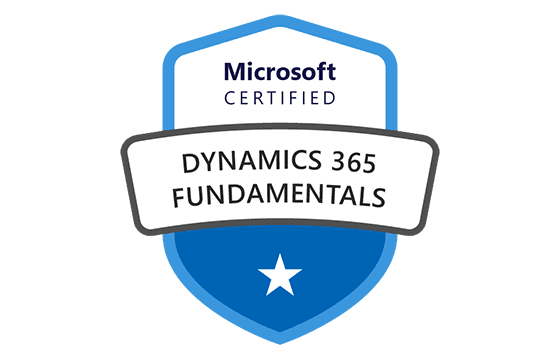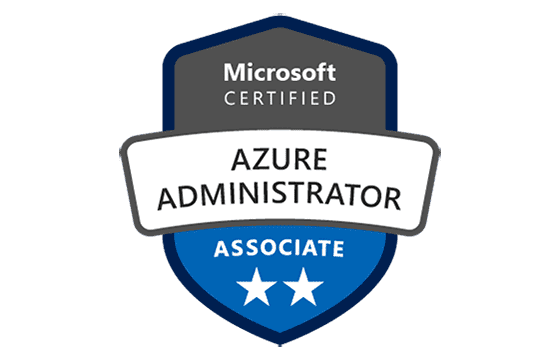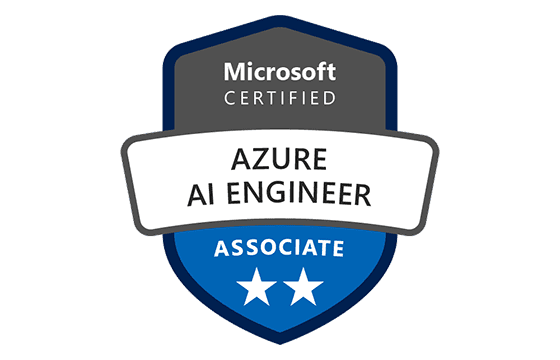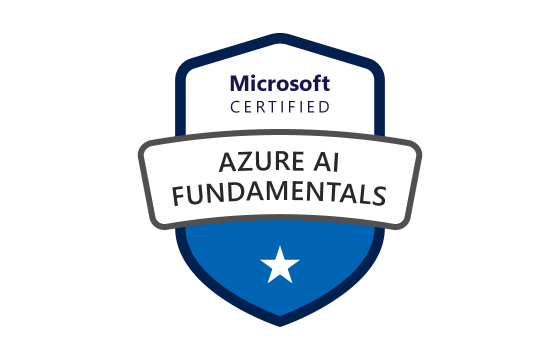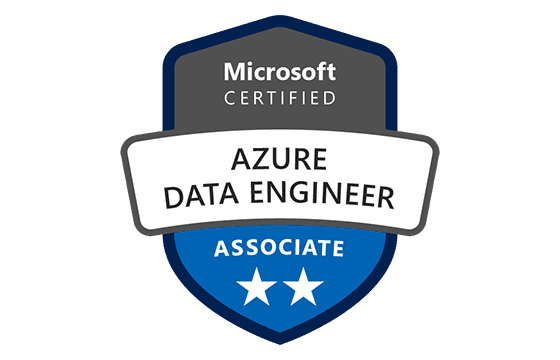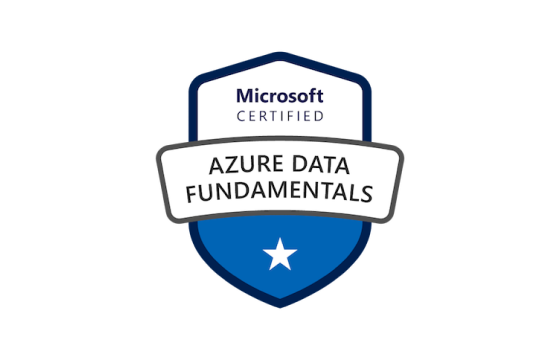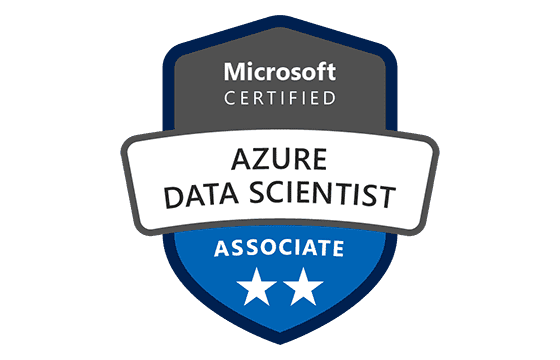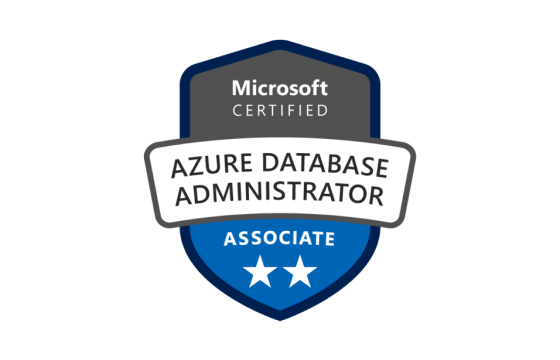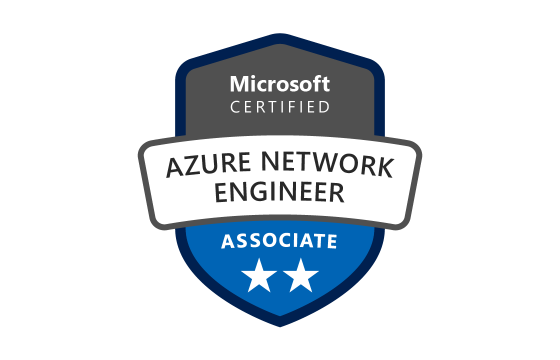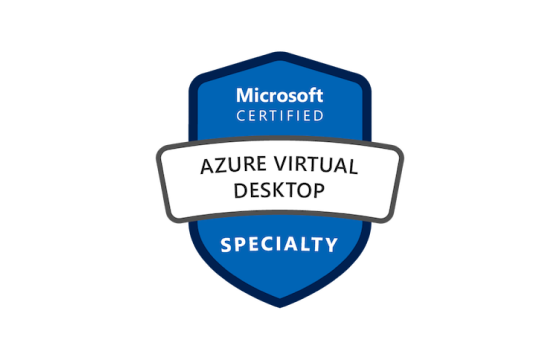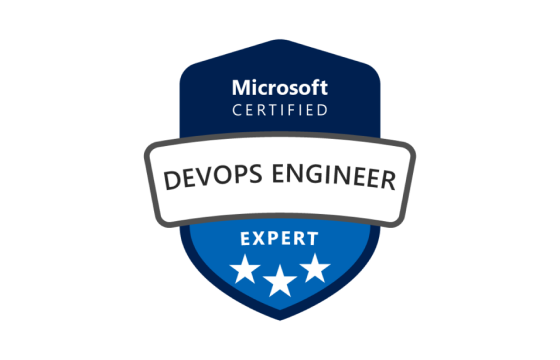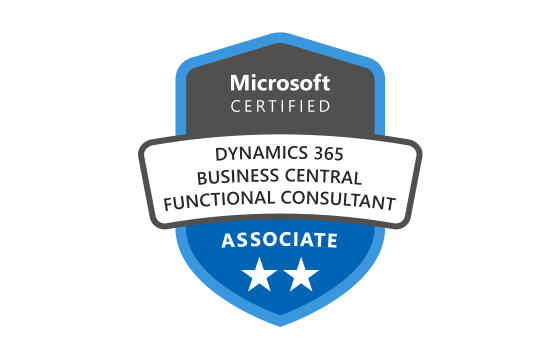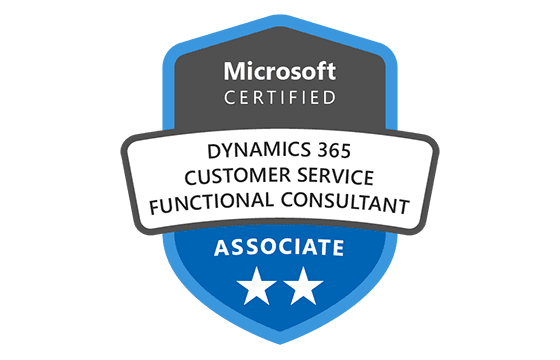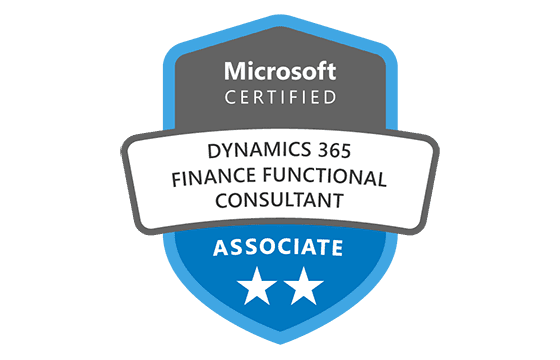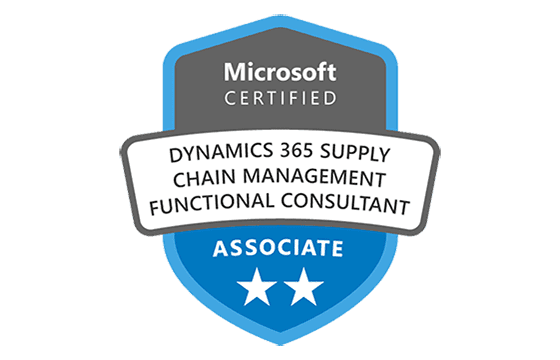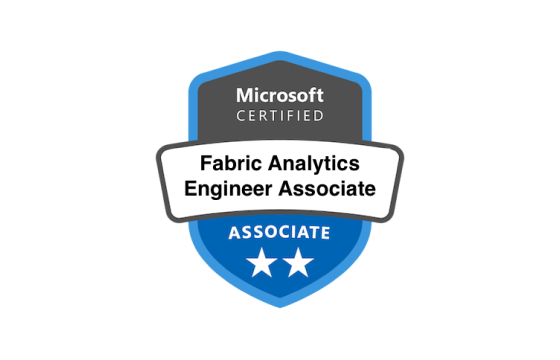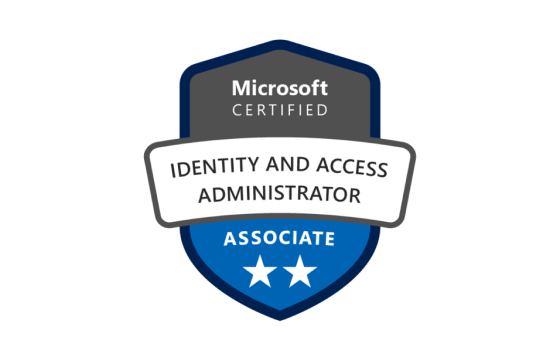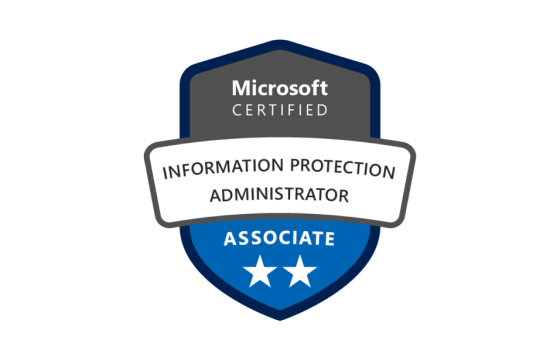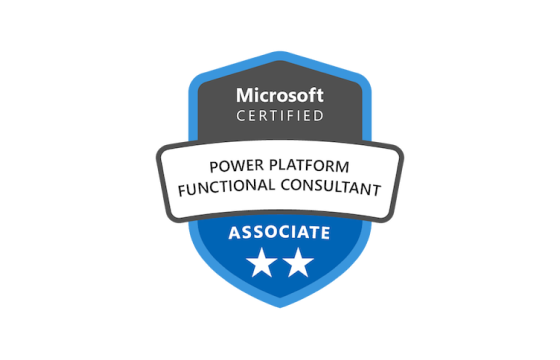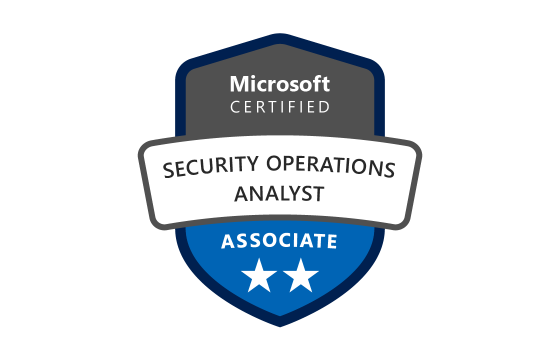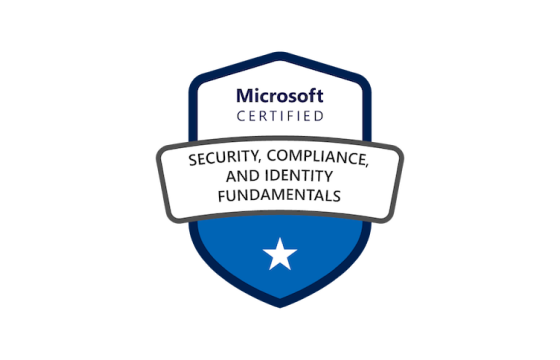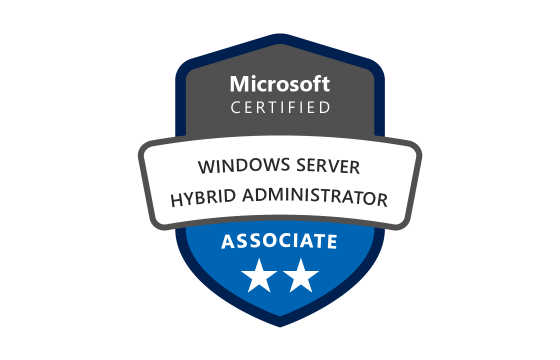Pass Your Microsoft Certified: Azure Data Engineer Associate Certification Easy!
Microsoft Certified: Azure Data Engineer Associate Certification Exams Questions & Answers, Accurate & Verified By IT Experts
Instant Download, Free Fast Updates, 99.6% Pass Rate.
Download Free Microsoft Certified: Azure Data Engineer Associate Practice Test Questions VCE Files
| Exam | Title | Files |
|---|---|---|
Exam DP-203 |
Title Data Engineering on Microsoft Azure |
Files 8 |
Microsoft Certified: Azure Data Engineer Associate Certification Exam Dumps & Practice Test Questions
Prepare with top-notch Microsoft Certified: Azure Data Engineer Associate certification practice test questions and answers, vce exam dumps, study guide, video training course from ExamCollection. All Microsoft Certified: Azure Data Engineer Associate certification exam dumps & practice test questions and answers are uploaded by users who have passed the exam themselves and formatted them into vce file format.
Mastering the Microsoft Certified Azure Data Engineer Associate: Skills, Preparation, and Career Growth
Data has become the lifeblood of modern organizations. Every interaction, transaction, and decision generates valuable information that businesses need to capture, analyze, and utilize. With the rise of cloud computing, handling data is no longer just about storing it in databases; it is about transforming raw data into actionable insights. This is where data engineers play a crucial role.
As organizations migrate workloads to the cloud, Microsoft Azure has emerged as a leading platform for managing and analyzing data. Skilled professionals who can design and implement data solutions in Azure are in high demand. The Microsoft Certified: Azure Data Engineer Associate certification validates the expertise required to work with complex data systems and ensures professionals are ready to meet the growing needs of businesses worldwide.
Understanding the Azure Data Engineer Role
The role of a data engineer extends beyond simple database management. A modern data engineer designs systems that ingest, store, transform, and deliver data to end-users and applications. Within Azure, this involves working with a wide range of services, from Azure Data Lake to Synapse Analytics, Data Factory, Databricks, and beyond.
An Azure data engineer ensures that data pipelines are efficient, secure, and optimized for performance. They bridge the gap between raw information and meaningful analytics, enabling organizations to make decisions based on accurate and timely data. The certification was created to demonstrate that a professional has mastered the skills necessary to succeed in this demanding and rewarding role.
Why This Certification Matters
The Azure Data Engineer Associate certification is not just another credential to add to a resume. It signifies that a professional has the practical skills to work with one of the most powerful cloud ecosystems in the world. Several factors make this certification especially valuable today.
First, the demand for cloud-based data solutions is skyrocketing. Businesses across every sector are generating more data than ever before, and they need experts who can manage it effectively. Second, the certification is backed by Microsoft, a global leader in cloud technology, making it widely recognized and respected. Finally, holding this certification can open doors to career advancement and higher salaries, as organizations are willing to invest in professionals who bring proven expertise.
Key Benefits of Becoming Certified
Earning the Azure Data Engineer Associate certification provides numerous benefits, both for the individual and the organization.
For professionals, the certification is a career accelerator. It can help candidates stand out in a crowded job market, increase earning potential, and validate expertise in handling enterprise-level data systems. It also ensures that the knowledge gained is relevant, as Microsoft regularly updates its certifications to match industry needs.
For organizations, having certified Azure data engineers means projects are completed with greater efficiency and reliability. Certified professionals bring a higher level of confidence when it comes to implementing secure, scalable, and cost-effective data solutions. This reduces risk while maximizing the value of data-driven initiatives.
Core Skills Measured by the Certification
The certification focuses on the practical skills required to manage data in a cloud environment. These skills include designing and implementing data storage solutions, developing data processing pipelines, ensuring compliance and security, and monitoring and optimizing performance.
Designing storage solutions involves selecting the right services for specific business needs. A certified data engineer must know when to use Azure Data Lake versus Azure SQL Database or Cosmos DB, and how to structure data so that it is both cost-effective and easy to access.
Building processing pipelines means working with tools like Azure Data Factory and Databricks to move and transform data from various sources. These pipelines must be reliable, capable of handling large volumes, and designed to meet business requirements.
Security and compliance are critical in today’s world of increasing data regulations. Data engineers must implement strategies that protect sensitive information, control access, and ensure compliance with legal standards such as GDPR or HIPAA.
Finally, performance optimization is essential. Even the most advanced system will fail to deliver results if it runs slowly or inefficiently. Certified engineers know how to monitor performance, identify bottlenecks, and optimize workloads to deliver fast, reliable insights.
Overview of the Certification Path
The Azure Data Engineer Associate certification was traditionally earned by passing two exams: DP-200 (Implementing an Azure Data Solution) and DP-201 (Designing an Azure Data Solution). Microsoft has since streamlined the process, and the updated certification now focuses on a single exam, DP-203 (Data Engineering on Microsoft Azure).
This exam covers both the design and implementation aspects of data engineering. It reflects the real-world responsibilities of data engineers, who are expected to not only design architectures but also implement and manage them effectively. Candidates should be prepared for questions and scenarios that test both their theoretical knowledge and their practical skills.
Who Should Pursue This Certification
The certification is ideal for professionals who are already working with data in some capacity and want to expand their expertise to the cloud. Database administrators, data analysts, and developers often find that the certification provides a natural next step in their careers.
It is also valuable for IT professionals transitioning to roles focused on big data and analytics. For those who want to future-proof their careers, developing skills in cloud-based data engineering ensures they remain competitive in an evolving job market.
Industries That Value Azure Data Engineers
Azure data engineers are not limited to one sector. Virtually every industry is investing in data-driven transformation. Healthcare organizations need secure and compliant systems to manage patient data. Financial institutions rely on real-time analytics for fraud detection and investment strategies. Retail companies leverage customer data to personalize shopping experiences. Even government agencies are adopting cloud-based data solutions for better public services.
By earning this certification, professionals make themselves valuable across a wide range of industries, each with its unique challenges and opportunities.
Comparison with Other Cloud Data Certifications
While Azure dominates a significant portion of the cloud market, it is not the only player. Amazon Web Services (AWS) and Google Cloud Platform (GCP) also offer certifications in data engineering. What sets the Azure Data Engineer Associate certification apart is its integration with Microsoft’s broader ecosystem.
Organizations that already use Microsoft technologies such as Office 365, Dynamics, or Power BI often choose Azure for their cloud needs. This makes the certification especially valuable in companies that have standardized on Microsoft solutions. For professionals working in such environments, Azure certification offers a distinct advantage over AWS or GCP alternatives.
The Role of Azure Services in Certification
Understanding the key services within Azure is critical to earning the certification. Some of the primary services include:
Azure Data Lake Storage for storing large volumes of structured and unstructured data
Azure Synapse Analytics for large-scale data warehousing and analytics
Azure Data Factory for building and orchestrating data pipelines
Azure Databricks for advanced analytics and machine learning integration
Cosmos DB for globally distributed, multi-model databases
Each of these services plays a role in modern data solutions, and the certification ensures professionals know how to use them effectively.
Challenges in Preparing for the Certification
While the certification provides significant benefits, preparing for it is not without challenges. The breadth of knowledge required can feel overwhelming, especially for those who are new to cloud environments. Candidates need to not only understand theory but also gain practical hands-on experience.
Azure’s rapid pace of innovation adds another layer of complexity. Services evolve frequently, and staying current with the latest updates is essential. This requires continuous learning, even after achieving certification.
Another challenge is balancing preparation with professional responsibilities. Many candidates pursue certification while working full-time, making effective study strategies critical.
Strategies for Overcoming Challenges
The key to success lies in structured preparation. Breaking down the exam objectives into manageable sections allows candidates to focus on one area at a time. Hands-on practice is equally important. Setting up trial environments in Azure and building small projects can help reinforce theoretical knowledge.
Candidates should also leverage the wealth of resources available, from Microsoft Learn and official documentation to community forums and practice exams. Engaging with others on the same journey can provide motivation and clarity when concepts seem complex.
The Future of Data Engineering with Azure
Looking ahead, the importance of cloud-based data engineering will only grow. As artificial intelligence, machine learning, and real-time analytics become standard business practices, the demand for skilled data engineers will increase. Azure’s commitment to innovation ensures that its platform will remain at the forefront of this trend.
For professionals, this means that earning the Azure Data Engineer Associate certification is not just about today’s opportunities but also about future-proofing their careers. The skills gained will remain relevant as technology evolves, ensuring long-term career resilience.
The Microsoft Certified: Azure Data Engineer Associate certification is more than just a badge of achievement. It represents the ability to harness the power of Azure to solve real-world business problems. By mastering data storage, pipelines, security, and optimization, certified professionals become indispensable assets to their organizations.
For anyone looking to advance their career in cloud computing and data, this certification offers a clear and rewarding path. It validates expertise, opens doors to exciting opportunities, and ensures professionals are prepared for the future of data engineering.
Understanding the Certification Path
The Microsoft Certified: Azure Data Engineer Associate certification is one of the most popular credentials for professionals working with data in cloud environments. While the certification has evolved over the years, the current path focuses on the DP-203 exam, titled Data Engineering on Microsoft Azure. This exam consolidates the responsibilities once divided between the older DP-200 and DP-201 exams, ensuring that candidates are tested on both designing and implementing Azure data solutions.
By completing this exam successfully, professionals demonstrate that they have the skills to design and build secure, scalable, and efficient data platforms. It validates the ability to work with Azure’s broad ecosystem of data services, making it a crucial credential for those who want to stand out in a competitive job market.
The DP-203 Exam at a Glance
The DP-203 exam is the gateway to becoming an Azure Data Engineer Associate. This exam tests a candidate’s ability to handle real-world data engineering tasks using Azure’s services. It evaluates both technical knowledge and the ability to apply that knowledge in practical scenarios.
The exam covers four primary domains:
Designing and implementing data storage
Developing data processing solutions
Securing, monitoring, and optimizing data solutions
Designing and implementing data solutions
Each domain carries a different weight, and candidates must prepare thoroughly across all areas to succeed.
Skills Measured in the Exam
The exam is designed to test comprehensive skills that reflect the real-world responsibilities of a data engineer. Candidates need to demonstrate proficiency in several key areas.
Designing and Implementing Data Storage
One of the first responsibilities of a data engineer is determining how data will be stored. In Azure, there are multiple services to choose from, each with its own advantages. For instance, Azure Data Lake Storage is well-suited for big data workloads, while Azure SQL Database works best for structured relational data. Cosmos DB is ideal for applications that need globally distributed, low-latency access.
The exam tests the ability to design storage solutions that are secure, cost-effective, and optimized for performance. Candidates must also demonstrate how to implement partitioning strategies, ensure data availability, and manage retention policies.
Developing Data Processing Pipelines
Raw data rarely comes in a format ready for analysis. A data engineer must create pipelines that clean, transform, and integrate data from multiple sources. The DP-203 exam places heavy emphasis on this skill, evaluating how well candidates can design and implement robust pipelines.
Azure Data Factory is one of the primary tools used for this purpose, enabling engineers to orchestrate workflows that move data between sources. Azure Databricks, another critical service, allows for advanced processing, machine learning integration, and large-scale transformations.
Candidates must be comfortable with building pipelines that can handle batch processing, streaming data, or a combination of both. They also need to know how to manage pipeline failures, monitor performance, and scale resources as needed.
Security, Compliance, and Governance
With data privacy and compliance regulations becoming stricter, securing data is no longer optional. The exam evaluates a candidate’s ability to implement strong security measures across storage and processing layers.
Key areas include configuring authentication and authorization, applying role-based access controls, encrypting data both at rest and in transit, and implementing compliance frameworks. Candidates must also understand how to monitor for potential vulnerabilities and create alerts when suspicious activity occurs.
Data governance is another important area. Engineers are expected to establish policies that ensure data quality, maintain metadata, and track lineage so that organizations can trust the accuracy and integrity of their data.
Monitoring and Optimization
Building a solution is only the first step. Ensuring that it performs reliably under real-world conditions is equally important. The exam tests candidates on their ability to monitor data systems, analyze performance metrics, and implement optimizations.
Azure Monitor, Log Analytics, and related services provide insights into system health and performance. Data engineers must know how to interpret logs, set up alerts, and make adjustments that keep systems running efficiently. They must also demonstrate skills in scaling resources dynamically to meet demand while controlling costs.
Recommended Prerequisites
While there are no mandatory prerequisites for the certification, Microsoft recommends that candidates have a solid foundation before attempting the DP-203 exam. A background in working with relational and non-relational databases is highly beneficial. Experience with SQL and query optimization also plays a critical role.
Familiarity with cloud concepts, especially those related to Azure, will make preparation smoother. Candidates who have already earned the Azure Fundamentals certification (AZ-900) or have equivalent knowledge often find themselves better prepared for the data engineer journey.
Programming skills in languages like Python, Scala, or Java can also be advantageous, especially when working with Databricks or advanced data transformations. While coding is not the primary focus of the exam, it is useful in building practical, scalable solutions.
Real-World Scenarios Tested in the Exam
One of the strengths of Microsoft’s certification exams is their emphasis on real-world problem-solving. The DP-203 exam presents scenarios that mirror challenges faced by data engineers in daily work.
For example, candidates may be asked to design a system that ingests data from IoT devices, processes it in near real-time, and stores it for analytics. They may also encounter scenarios requiring them to choose between batch and streaming pipelines or to optimize an underperforming data warehouse.
By including such scenarios, the exam ensures that certified professionals can apply their skills in practical situations, not just answer theoretical questions.
Differences Between Associate and Expert-Level Certifications
Microsoft certifications are structured into different levels, such as fundamentals, associate, and expert. The Azure Data Engineer Associate sits at the associate level, making it accessible to those with some prior experience in data or cloud systems but not necessarily advanced expertise.
An expert-level certification typically requires a deeper understanding of architectural design and strategic decision-making. While the data engineer associate focuses on implementing and designing data solutions, an expert certification would cover broader cloud architecture responsibilities.
Understanding this distinction helps candidates set realistic expectations. The associate-level certification is a strong credential in its own right, but it also serves as a stepping stone toward more advanced certifications if desired.
Preparation Resources
Candidates preparing for the DP-203 exam have access to a wide range of resources. Microsoft Learn provides official training modules, offering guided paths that cover every aspect of the exam. These resources include interactive labs where candidates can practice directly in Azure environments.
Online learning platforms such as Coursera, Udemy, and Pluralsight offer comprehensive courses that break down exam objectives into manageable lessons. Many of these courses include hands-on labs and practice questions, giving candidates the chance to test their knowledge before sitting for the exam.
Study guides and practice exams are also invaluable. They allow candidates to identify weak areas, simulate the exam experience, and build confidence. Joining study groups or online communities can further enhance preparation, providing opportunities to discuss concepts and share strategies.
Time Commitment for Preparation
The time needed to prepare for the DP-203 exam depends on the candidate’s background. Those with prior experience in data engineering or Azure may require only a few weeks of focused study. Others who are newer to cloud environments may need several months of preparation.
Creating a study plan is essential. Breaking the syllabus into sections and dedicating time each week ensures steady progress. Setting aside time for hands-on practice is equally important, as practical skills are critical to success in both the exam and real-world applications.
Exam Format and Scoring
The DP-203 exam typically consists of multiple-choice questions, case studies, and scenario-based exercises. Candidates may also encounter drag-and-drop or fill-in-the-blank questions that test detailed knowledge.
The passing score is 700 out of 1000. While this may seem straightforward, the mix of question types requires a comprehensive understanding of concepts. Some questions test factual recall, while others assess the ability to apply knowledge in complex scenarios.
Understanding the exam format helps reduce stress on test day. Candidates who practice with sample exams will be better prepared to manage their time and approach each question with confidence.
The Value of Continuous Learning
Earning the certification is a significant achievement, but it should not mark the end of the learning journey. Microsoft regularly updates its services, and data engineering best practices evolve with industry trends.
Certified professionals are encouraged to keep up with new features, attend webinars, and explore advanced topics. Continuous learning ensures that their skills remain relevant and that they continue to bring value to their organizations.
Building a Foundation for Career Growth
The Azure Data Engineer Associate certification is more than just a credential. It provides a strong foundation for career growth in data engineering and beyond. By mastering the exam objectives, professionals gain the ability to design and implement systems that handle complex data challenges.
This foundation can lead to advanced certifications or specializations in areas like artificial intelligence, data science, or cloud architecture. It also prepares professionals to take on leadership roles in data-focused projects, positioning them as experts in their organizations.
The Microsoft Certified: Azure Data Engineer Associate certification is a comprehensive credential that validates both technical knowledge and practical skills. By mastering the exam domains, professionals demonstrate their ability to design, implement, secure, and optimize data solutions in Azure.
The DP-203 exam is challenging but achievable with structured preparation, hands-on practice, and the right resources. For those committed to a career in data engineering, earning this certification provides a competitive advantage and opens doors to exciting opportunities in the ever-expanding world of cloud data.
Why Preparation Matters
Earning the Microsoft Certified: Azure Data Engineer Associate certification requires more than just reading documentation. The DP-203 exam is designed to test not only theoretical understanding but also the ability to apply skills in practical, real-world scenarios. Because the certification validates expertise in designing and implementing end-to-end data solutions, candidates need to prepare strategically. Without a plan, it is easy to feel overwhelmed by the breadth of knowledge required.
Proper preparation ensures that knowledge is retained, confidence is built, and skills are sharpened. It also helps candidates avoid common pitfalls, such as focusing too much on theory without gaining enough hands-on practice.
Structuring a Study Plan
A structured study plan is the most effective way to prepare. Candidates should begin by reviewing the exam objectives published by Microsoft, which outline the skills measured. Breaking these objectives into smaller study sections makes preparation more manageable.
A typical study plan might be divided into phases:
Review of foundational concepts, including cloud fundamentals and database basics.
Study of Azure services relevant to data engineering, such as Azure Data Factory, Databricks, and Synapse Analytics.
Hands-on practice with real scenarios to reinforce learning.
Practice exams and revision to identify weak areas and build confidence before the test.
The time required for each phase depends on a candidate’s background. Someone already familiar with Azure and data engineering concepts may complete preparation in six to eight weeks, while beginners may require three to six months.
Recommended Learning Resources
Microsoft provides official learning paths through Microsoft Learn, which cover every objective of the exam. These resources are free and interactive, making them an excellent starting point. They include step-by-step guides, practice labs, and knowledge checks.
Beyond Microsoft Learn, there are several other valuable resources:
Online courses from platforms such as Udemy, Pluralsight, and Coursera that provide structured lessons.
Books that explain Azure data services in depth, often with case studies and practical exercises.
YouTube tutorials and community blogs that share tips, walkthroughs, and real-world projects.
Practice exams that simulate the actual test environment.
The best approach is to combine these resources rather than rely on one. Official documentation ensures accuracy, while third-party resources often provide context and examples that make concepts easier to understand.
Importance of Hands-On Experience
No amount of reading can substitute for hands-on experience. The exam tests how well candidates can use Azure services to solve problems, not just how much they know about them. Setting up an Azure free trial account provides access to the tools needed for practice.
Practical exercises might include building a pipeline in Azure Data Factory to move data from an on-premises source to Azure Data Lake, then transforming it with Databricks before loading it into Synapse Analytics for reporting. Another exercise could involve securing a dataset by configuring access policies and auditing usage with Azure Monitor.
By working on such projects, candidates gain confidence and ensure that they can apply concepts under exam conditions and in real work environments.
Sample Projects for Practice
To reinforce learning, candidates should try building small but realistic projects. Examples include:
Creating an ETL pipeline using Azure Data Factory that ingests CSV files from cloud storage, cleans the data, and loads it into a relational database.
Setting up a data warehouse in Azure Synapse Analytics, designing partitioning strategies, and running performance tests.
Using Azure Databricks to process large datasets, applying machine learning algorithms to extract insights.
Implementing security measures by encrypting data, applying role-based access controls, and monitoring compliance.
These projects not only prepare candidates for the exam but also provide practical experience that can be showcased on resumes and during interviews.
Balancing Theory and Practice
It is easy to become unbalanced during preparation, either by focusing too much on theory or spending too much time experimenting without direction. A successful strategy balances both.
Theory provides the foundation, ensuring that candidates understand why a particular service or approach is used. Practice ensures that this knowledge can be applied effectively. For example, reading about Azure Synapse Analytics helps understand its architecture, but building a data warehouse and running queries makes the knowledge practical.
Time Management During Preparation
Time management is one of the biggest challenges for working professionals preparing for certification. Many candidates pursue the exam while balancing full-time jobs and personal commitments.
Creating a schedule with dedicated study hours each week can help. Even short, focused study sessions of one to two hours per day are effective if followed consistently. Setting milestones, such as completing a module or project within a week, provides motivation and a sense of progress.
It is also important to allow time for revision and practice exams. Many candidates underestimate the value of reviewing previously studied material, which reinforces retention.
Practice Exams and Self-Assessment
Taking practice exams is one of the most effective ways to prepare. They simulate the pressure of the real test and help identify areas where more study is needed.
After completing a practice test, candidates should analyze their mistakes. Were they due to a lack of knowledge, misinterpretation of the question, or running out of time? Understanding the reasons for errors ensures improvement.
Practice exams also build familiarity with the exam format, reducing anxiety on test day. Knowing how questions are structured and how much time to allocate per question provides a strategic advantage.
Joining Study Groups and Communities
Studying alone can feel isolating. Joining study groups or online communities provides motivation and support. Platforms like LinkedIn, Reddit, and Microsoft Tech Community host groups where candidates share resources, answer questions, and discuss strategies.
Engaging with others on the same journey can provide new insights. Someone else’s explanation of a concept may resonate more clearly than a textbook or video. Study groups also keep members accountable, encouraging consistent progress.
Leveraging Official Documentation
Azure services are constantly updated, and while books and courses provide valuable information, official Microsoft documentation is always the most up-to-date source. Candidates should make it a habit to consult documentation when in doubt.
Documentation provides not only explanations but also code samples, architecture diagrams, and best practices. By becoming comfortable navigating these resources, candidates also build a skill they will use frequently in real-world data engineering roles.
Common Pitfalls to Avoid
Many candidates make mistakes during preparation that hinder their success. Common pitfalls include:
Relying too heavily on one resource instead of using a mix of official and third-party materials.
Skipping hands-on practice and focusing only on theory.
Underestimating the importance of security and compliance, which are heavily tested in the exam.
Procrastinating and trying to cram at the last minute instead of following a steady study plan.
Ignoring weak areas and focusing only on familiar topics.
By recognizing and avoiding these pitfalls, candidates improve their chances of success.
Exam-Day Strategies
Preparation does not end when study is complete. Having a strategy for exam day is just as important. Candidates should ensure they are well-rested, arrive early, and bring the necessary identification and materials.
During the exam, it is important to manage time wisely. Spending too long on one question can reduce the time available for others. Marking difficult questions for review and returning to them later is often more effective than struggling and losing valuable minutes.
Reading each question carefully is critical. Many questions are designed to test not only knowledge but also attention to detail. Misreading a requirement can lead to selecting an incorrect answer, even if the underlying knowledge is sound.
Building Confidence Through Mock Scenarios
Confidence often comes from familiarity. Candidates should practice solving mock scenarios that mirror real-world challenges. For example, designing a solution for a retail company that needs to integrate point-of-sale data with online sales can help solidify concepts.
By working through scenarios, candidates become more comfortable making decisions about which Azure services to use, how to structure pipelines, and how to optimize performance. This prepares them for the scenario-based questions on the exam and builds confidence in their professional abilities.
Continuous Revision and Reinforcement
Knowledge fades quickly if not reinforced. Regular revision ensures that concepts remain fresh. Reviewing notes, redoing exercises, and retaking practice exams helps retain information.
Some candidates find it helpful to create summary sheets or flashcards with key concepts. These can be reviewed in short bursts, making them especially useful for busy professionals.
Staying Motivated
Preparing for a certification exam can be a long journey, and motivation sometimes wanes. Setting clear goals helps maintain focus. For some, the goal is a promotion or a new job opportunity. For others, it is the personal satisfaction of mastering a challenging subject.
Celebrating small milestones, such as completing a study module or successfully building a practice project, provides encouragement along the way. Reminding oneself of the career benefits also reinforces the value of the effort.
Preparation is the foundation of success in earning the Microsoft Certified: Azure Data Engineer Associate certification. With a structured plan, the right resources, and consistent effort, candidates can master the exam objectives and gain the confidence needed to excel.
By balancing theory with hands-on practice, engaging in study communities, and learning from practice exams, candidates set themselves up not only for exam success but also for real-world effectiveness as data engineers. The effort invested in preparation pays off not just with a credential, but with lasting skills that enhance career opportunities in the rapidly growing field of data engineering.
The rising demand for data engineers
The exponential growth of digital information has turned data into one of the most valuable business assets. Organizations across industries rely on data-driven decision-making, and this shift has created an unprecedented demand for skilled professionals who can build, maintain, and optimize data systems. Among these roles, the Azure Data Engineer has become particularly important as companies migrate their workloads to the Microsoft Azure cloud platform.
With the increasing adoption of hybrid and multi-cloud strategies, data engineers are no longer limited to traditional ETL pipelines. They are now tasked with building scalable architectures that support real-time analytics, artificial intelligence, and compliance requirements. As a result, professionals holding the Microsoft Certified: Azure Data Engineer Associate certification are finding themselves in high demand across a wide range of industries, from healthcare and retail to finance and government.
Industries hiring Azure Data Engineers
Data engineering skills have become essential across nearly every sector. The industries most actively recruiting certified Azure Data Engineers include:
Technology companies that rely on real-time analytics, machine learning models, and large-scale data processing.
Financial services firms that need secure, compliant, and high-performance data infrastructures to process millions of transactions daily.
Healthcare providers that must integrate electronic health records, IoT medical devices, and patient analytics within strict compliance frameworks.
Retail and e-commerce businesses that leverage customer behavior data to personalize experiences, optimize supply chains, and forecast demand.
Government agencies adopting cloud-first policies to modernize legacy systems and improve transparency through data sharing.
Because data is now central to competitiveness, organizations in both the private and public sectors seek Azure-certified engineers to design robust, cost-efficient, and future-ready data solutions.
Job roles available after certification
Earning the Azure Data Engineer Associate certification prepares professionals for a variety of technical roles. While job titles may differ across organizations, common positions include:
Azure Data Engineer
Data Engineer
Data Architect
Business Intelligence Engineer
Analytics Engineer
Big Data Developer
Cloud Data Specialist
In many cases, the certification also opens doors to senior roles in data architecture and solutions design. The technical skills validated by this credential demonstrate an ability to integrate Azure Data Factory, Azure Synapse Analytics, Azure Databricks, and Azure Data Lake into real-world projects, which are key competencies for cloud-first organizations.
Average salaries of Azure Data Engineers
One of the most attractive aspects of this certification is the salary potential. Azure Data Engineers are consistently among the top-earning roles in the cloud and data ecosystem.
Salary ranges vary depending on location, experience level, and company size, but general benchmarks are:
Entry-level or junior Azure Data Engineers often earn between $85,000 and $110,000 annually in the United States.
Mid-level professionals with two to five years of experience typically earn between $110,000 and $135,000 annually.
Senior Azure Data Engineers or Data Architects with extensive experience can command salaries from $135,000 to over $160,000 annually.
Globally, salaries are adjusted to local economies, but the premium for cloud and data skills remains consistent. For example, in Europe, certified Azure Data Engineers often earn between €60,000 and €90,000 annually, while in Asia-Pacific regions, salaries vary widely but continue to outpace non-certified data professionals.
Factors influencing earning potential
Several factors contribute to the salary ranges for Azure Data Engineers. These include:
Level of experience: Hands-on exposure to large data projects significantly increases market value.
Specializations: Engineers with strong backgrounds in machine learning, real-time streaming, or advanced analytics often earn higher salaries.
Location: Professionals in technology hubs like San Francisco, London, or Singapore typically command higher compensation.
Industry: Finance and healthcare organizations, due to the complexity of their data systems and compliance needs, often pay more for skilled engineers.
Additional certifications: Combining the Azure Data Engineer credential with certifications like Azure Solutions Architect Expert or Azure AI Engineer Associate can further boost earning potential.
Growth opportunities in the data engineering field
Beyond immediate salary prospects, the career trajectory for Azure Data Engineers is promising. As organizations increasingly move toward advanced analytics and AI-driven decision-making, engineers who can design systems to handle complex workloads will continue to see strong career growth.
Potential growth paths include:
Transitioning into senior data architect or cloud solutions architect roles.
Moving into leadership positions such as data engineering manager or director of data platforms.
Expanding into adjacent areas such as AI, machine learning, or DevOps for data systems.
Building expertise in hybrid and multi-cloud strategies, which is becoming a priority for enterprise data strategies.
The dynamic nature of data technologies ensures that certified professionals can continuously build new skills and remain valuable in the market.
Global trends shaping data engineering careers
Several key trends are influencing the demand and career opportunities for Azure Data Engineers:
The rise of artificial intelligence and machine learning, which depend on well-structured, high-quality data pipelines.
Increased emphasis on real-time data streaming to support customer personalization, IoT applications, and predictive analytics.
Growing importance of compliance with regulations like GDPR, HIPAA, and CCPA, which require data engineers to embed governance into systems.
Expansion of hybrid and multi-cloud environments, making cross-platform data expertise an in-demand skill.
A shift toward automation in data integration and pipeline monitoring, requiring engineers to balance traditional coding with automation tools.
Azure Data Engineers who keep pace with these trends are likely to remain in high demand and benefit from upward career mobility.
Remote work and global opportunities
One of the positive outcomes of the remote work movement is the globalization of data engineering opportunities. Organizations now hire talent from around the world, and certified professionals are not limited to their local job markets. This has increased both competition and opportunities, enabling Azure Data Engineers to work for leading global enterprises without relocating.
Remote roles often come with competitive pay packages and flexibility, making this career path particularly appealing for professionals seeking work-life balance alongside high earning potential.
Building long-term career resilience
While salary and immediate job opportunities are compelling, one of the greatest benefits of the Azure Data Engineer certification is long-term career resilience. As businesses continue investing heavily in digital transformation, professionals skilled in building reliable, scalable, and secure data solutions will remain relevant.
To maintain career resilience, certified engineers should:
Continuously update their skills as Microsoft evolves Azure services.
Gain practical experience with new technologies such as Azure Purview for data governance or Azure Synapse for serverless analytics.
Network with industry peers to stay informed about trends and best practices.
Contribute to open-source or community projects to demonstrate expertise beyond certification.
This combination of certification, hands-on practice, and continuous learning positions professionals for long-term success in a constantly evolving technology landscape.
The Microsoft Certified: Azure Data Engineer Associate certification does more than validate technical skills. It serves as a gateway to lucrative career opportunities, high salaries, and roles that are at the heart of digital transformation. From entry-level positions to senior architecture roles, certified professionals enjoy a wide range of options across industries and geographies.
As organizations double down on cloud adoption and data-driven decision-making, Azure Data Engineers are becoming indispensable. This makes the certification not only a career milestone but also a strategic investment in future-proofing one’s professional journey.
The Value of Certification in Today’s Data-Driven World
Data is now the most valuable asset for businesses, shaping decisions, strategies, and innovations across every industry. The Microsoft Certified Azure Data Engineer Associate certification empowers professionals to design and implement scalable, secure, and optimized data solutions. As organizations migrate to the cloud, data engineers certified in Azure are recognized as experts capable of handling both structured and unstructured datasets.
This recognition is not only beneficial for individuals pursuing career advancement but also for businesses looking to validate their team’s expertise. Certification demonstrates a commitment to industry standards and ensures alignment with Microsoft’s best practices.
Bridging the Gap Between Data and Business Intelligence
One of the main goals of a data engineer is to bridge the technical complexities of data pipelines with the business need for accessible insights. Without proper engineering, data remains fragmented, unreliable, and unusable. Azure data engineers solve this by ensuring the flow of data from various sources into systems that support visualization, analytics, and artificial intelligence.
With skills gained through this certification, professionals are able to implement reliable extract-transform-load (ETL) processes, secure sensitive information, and enable business analysts and data scientists to unlock real value from the data.
Industry Trends Driving the Demand for Azure Data Engineers
Several global trends are increasing the need for certified Azure data engineers. First is the rapid migration of on-premises systems to the cloud. Azure, being one of the top three cloud providers, offers an extensive set of services designed for big data and advanced analytics.
Second, the rise of artificial intelligence and machine learning means data must be readily available, clean, and well-organized. Engineers certified in Azure can design solutions that support training and deploying AI models at scale.
Third, industries such as finance, healthcare, and retail are under regulatory pressure to ensure compliance with privacy laws like GDPR and HIPAA. Azure data engineers are trained to implement governance frameworks and ensure secure handling of data across global systems.
Building a Long-Term Career Path with the Certification
While achieving the Azure Data Engineer Associate certification is an important milestone, it also sets the stage for broader career growth. Many professionals use this certification as a stepping stone toward more advanced roles, such as Azure Solutions Architect Expert, Azure AI Engineer, or even leadership positions in data strategy.
The certification not only enhances technical credibility but also strengthens soft skills like problem-solving, project management, and collaboration across teams. As companies prioritize digital transformation, certified professionals often find themselves leading initiatives that directly impact organizational success.
Practical Projects to Showcase Your Skills
Beyond the exam, professionals can strengthen their profile by building projects that reflect real-world challenges. Some examples include:
Creating a modern data warehouse using Azure Synapse Analytics with integrated reporting dashboards.
Designing an event-driven architecture that processes streaming IoT data in real time using Azure Stream Analytics.
Building a machine learning pipeline using Azure Databricks for preprocessing and Azure Machine Learning for deployment.
Implementing robust governance and security controls for sensitive data in compliance-heavy industries.
These projects can be added to portfolios, GitHub repositories, or presented during interviews to demonstrate the ability to apply theoretical knowledge to practical solutions.
Overcoming Challenges in the Learning Journey
The path to certification may present challenges, especially for professionals transitioning from traditional database roles to cloud-focused responsibilities. Concepts such as distributed data systems, orchestration pipelines, and machine learning integrations may feel overwhelming at first.
The key to overcoming these challenges lies in structured learning. Breaking down topics into manageable segments, practicing regularly in Azure environments, and engaging with the community can simplify even the most complex topics. Another challenge is keeping pace with Microsoft’s frequent updates to Azure services. Continuous learning and monitoring the official documentation will help ensure skills remain relevant.
The Role of Community and Networking
One of the underrated aspects of pursuing the certification is the value of connecting with peers. Online forums, LinkedIn groups, and local meetups dedicated to Azure professionals can provide support, mentorship, and collaboration opportunities.
Engaging with the community allows professionals to stay updated on industry trends, exchange study tips, and even discover job opportunities. Microsoft also encourages networking through official events such as Ignite and Build, where certified engineers can interact with experts and expand their professional presence.
The Global Recognition of Microsoft Certification
Microsoft certifications enjoy global recognition, making them valuable for professionals aiming to work in international roles. Whether in North America, Europe, Asia, or emerging markets, organizations trust Microsoft-certified professionals to deliver reliable and secure solutions.
This global value opens doors to remote work opportunities, which are increasingly in demand. Certified Azure data engineers often find themselves working with cross-border teams, solving challenges for multinational companies, and contributing to global-scale projects.
The Future of Data Engineering and Azure
Looking ahead, the role of the Azure data engineer will only become more significant. As technologies such as edge computing, the Internet of Things, and hybrid cloud continue to expand, engineers will be required to design architectures that can handle unprecedented volumes and velocity of data.
Azure is also investing heavily in integrating AI capabilities within its services. This trend means data engineers will work more closely with AI teams, supporting intelligent applications that rely on clean and accessible data. Additionally, advances in quantum computing and new storage technologies may reshape data engineering practices in the coming decade.
For professionals, this highlights the importance of continuous upskilling. While the certification provides a solid foundation, success in the long term will depend on adaptability and willingness to explore emerging areas of technology.
How Organizations Benefit from Certified Data Engineers
From the business perspective, hiring certified Azure data engineers ensures that projects are implemented efficiently and securely. Organizations can reduce downtime, optimize costs, and improve compliance by relying on professionals who understand Microsoft’s best practices.
Certified engineers also bring a level of credibility that reassures stakeholders, including clients, regulators, and business leaders. Their expertise contributes to smoother project execution and supports innovation by enabling teams to work with reliable datasets.
Strategies to Maintain Certification Relevance
Certification is not a one-time achievement but an ongoing commitment. Microsoft regularly updates exam objectives to reflect evolving technologies. Professionals are encouraged to participate in renewal assessments, explore new certifications, and continuously practice with Azure services.
Staying relevant also involves keeping up with business needs. While technical expertise is essential, aligning solutions with organizational goals ensures that skills remain valuable in practical scenarios. Regularly participating in training, webinars, and workshops can help maintain a competitive edge.
Personal Branding as a Certified Azure Data Engineer
Once certified, professionals should also focus on building their personal brand. Updating professional profiles, showcasing projects, and contributing to community discussions can enhance visibility. Writing blog posts, speaking at events, or mentoring aspiring engineers are effective ways to demonstrate expertise.
Personal branding not only attracts career opportunities but also positions professionals as thought leaders in the industry. This recognition often leads to invitations for collaborations, partnerships, or leadership roles.
Final Thoughts
The Microsoft Certified Azure Data Engineer Associate certification is more than a credential; it is a gateway to mastering the art of managing data in the cloud. From enabling business intelligence to supporting machine learning, certified professionals play a central role in shaping the future of data-driven decision-making.
By investing in this certification, individuals gain not only technical expertise but also a competitive advantage in the job market. Organizations benefit by securing reliable, scalable, and secure data solutions implemented by certified experts.
The journey may require dedication, but the rewards are significant—ranging from career advancement to global opportunities and participation in cutting-edge technological transformations. As data continues to drive innovation, the demand for skilled Azure data engineers will remain strong, ensuring that this certification holds enduring value for years to come.
ExamCollection provides the complete prep materials in vce files format which include Microsoft Certified: Azure Data Engineer Associate certification exam dumps, practice test questions and answers, video training course and study guide which help the exam candidates to pass the exams quickly. Fast updates to Microsoft Certified: Azure Data Engineer Associate certification exam dumps, practice test questions and accurate answers vce verified by industry experts are taken from the latest pool of questions.
Microsoft Microsoft Certified: Azure Data Engineer Associate Video Courses






Top Microsoft Certification Exams
- AZ-104
- AI-102
- DP-700
- AI-900
- AZ-305
- PL-300
- MD-102
- AZ-500
- AZ-900
- SC-200
- SC-300
- MS-102
- AZ-204
- SC-401
- DP-600
- SC-100
- AZ-700
- PL-200
- AZ-400
- AZ-800
- SC-900
- AZ-140
- PL-400
- PL-600
- AZ-801
- MS-900
- DP-300
- MS-700
- MB-280
- PL-900
- MB-800
- GH-300
- MB-330
- MB-310
- DP-100
- DP-900
- MB-820
- MB-230
- MB-700
- MS-721
- GH-200
- MB-920
- GH-900
- MB-910
- PL-500
- MB-335
- MB-500
- GH-500
- DP-420
- GH-100
- MB-240
- AZ-120
- SC-400
- DP-203
- AZ-303
- 62-193
- 98-383
- MO-100
- MB-210
- 98-388
- MB-900
Site Search:





